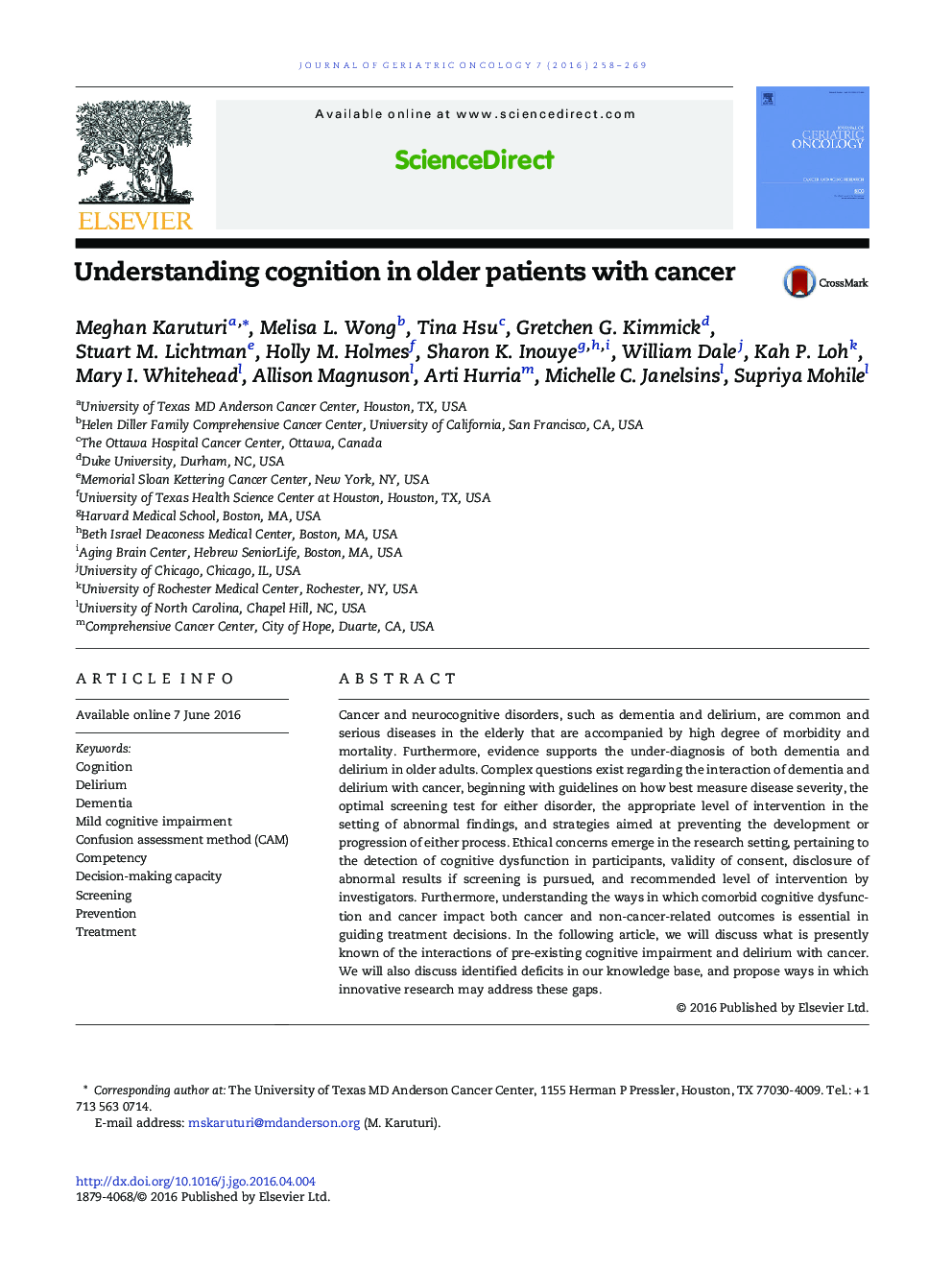| Article ID | Journal | Published Year | Pages | File Type |
|---|---|---|---|---|
| 1912198 | Journal of Geriatric Oncology | 2016 | 12 Pages |
Cancer and neurocognitive disorders, such as dementia and delirium, are common and serious diseases in the elderly that are accompanied by high degree of morbidity and mortality. Furthermore, evidence supports the under-diagnosis of both dementia and delirium in older adults. Complex questions exist regarding the interaction of dementia and delirium with cancer, beginning with guidelines on how best measure disease severity, the optimal screening test for either disorder, the appropriate level of intervention in the setting of abnormal findings, and strategies aimed at preventing the development or progression of either process. Ethical concerns emerge in the research setting, pertaining to the detection of cognitive dysfunction in participants, validity of consent, disclosure of abnormal results if screening is pursued, and recommended level of intervention by investigators. Furthermore, understanding the ways in which comorbid cognitive dysfunction and cancer impact both cancer and non-cancer-related outcomes is essential in guiding treatment decisions. In the following article, we will discuss what is presently known of the interactions of pre-existing cognitive impairment and delirium with cancer. We will also discuss identified deficits in our knowledge base, and propose ways in which innovative research may address these gaps.
